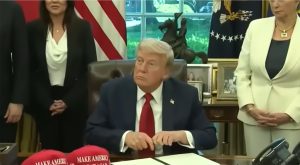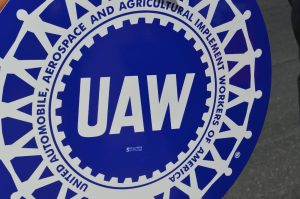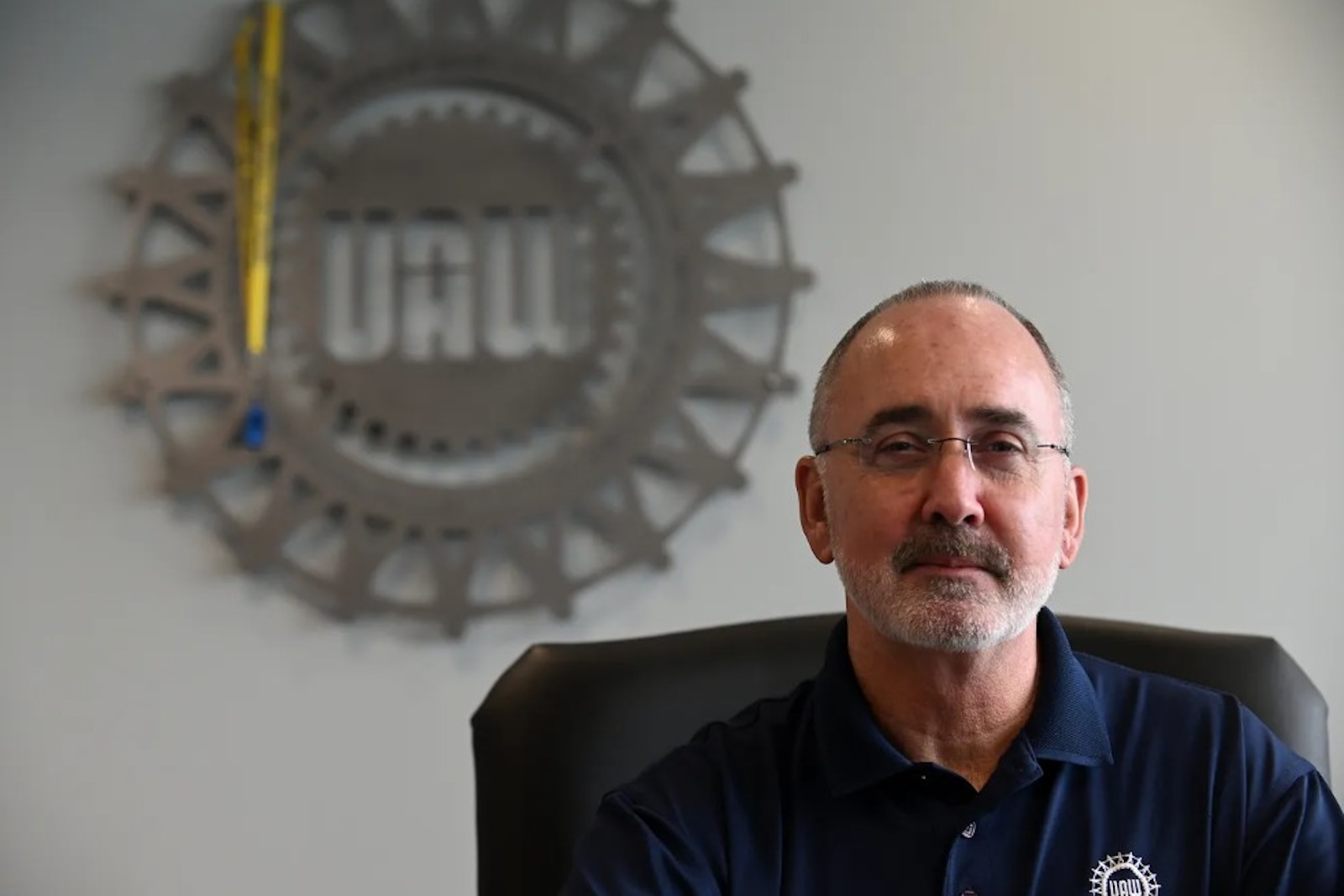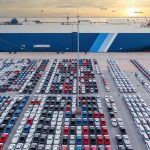After throwing its support behind Pres. Donald Trump’s 25% tariffs on imported autos and auto parts, the United Auto Workers admits is coming up empty handed in the administration’s new deal with Japan, which offers nothing for workers and could lead to lower wages. Headlight.News has more.

The trade deal with Japan will raise tariffs on auto imports – but it’s still not being seen as a win in Detroit.
The United Auto Workers Union says it has been double-crossed by the Trump administration’s deal with Japan, which the union says gives the Japanese carmakers a break putting unionized automotive manufacturers in the U.S. at a disadvantage.
While the UAW backed Democrat Kamala Harris during the presidential campaign, UAW President Shawn Fain took the unprecedented step last spring of endorsing President Donald Trump’s push for higher tariffs on imported goods. Fain billed it as part of a broader effort to force foreign companies to build factories in the U.S.
Fain’s support for Trump’s tariffs left him at odds with many of the UAW’s traditional allies in the Democratic party at a time when the Trump administration made numerous moves opposing many of the union’s traditional policies and platforms.
Fain flip-flops

UAW President Shawn Fain strongly backed Kamala Harris in the 2024 presidential election but then lent support to the Trump tariff plan.
Fain defended his position on tariffs saying they were needed to protect American workers.
However, critics contend the Trump administration’s tentative agreement on tariffs with Japan appears to offer nothing for American workers, which drops tariffs on Japanese exports to the U.S. at 15%. That is down from an original 25% target. The deal does nothing, however, to open the Japanese home market to U.S. goods, something Trump and his lieutenants such has Commerce Secretary Howard Lutnick promised.
“The UAW is deeply angered by the Trump administration’s announced trade deal with Japan. What we’ve seen so far makes one thing clear: American workers are once again being left behind,” the UAW said in a statement after the tentative deal with Japan was announced by the White House.
“For decades, Japanese automakers have exploited open access to the U.S. market while failing to do right by American workers,” the statement added. “Now, instead of addressing the problem, this deal gives them another break—at the expense of the very companies and workers that built the American auto industry into the global standard for good jobs and world-class products.
UAW sees no benefits in Trump deals

One of the union’s concerns is the potential plunge in profit-sharing as tariffs hammer GM, Stellantis and Ford earnings.
This is the second major deal that the Trump administration has negotiated with a trade partner deeply tied to the auto industry. Critics argued that an earlier agreement with Britain also provided limited benefits for U.S. manufacturers. It did little to open up the UK market to American-made vehicles and set no requirement for British manufacturers to shift production to the U.S.
As for the deal with Japan, the union called out the administration’s failure to insist on unionizing Japanese auto factories operating in the U.S. UAW leaders contend that will result in downward pressure on wages at unionized plants.
“A better deal would have held Japanese automakers to the same standards U.S. workers have fought for at GM, Ford, and Stellantis: living wages, quality health care, secure retirements, job stability, and the freedom to form unions without intimidation,” according to the UAW.
More Tariff News
- Japanese Auto Imports Face 15% Tariffs Under Trade Deal
- GM Net Income Crashes Under Weight of Tariffs
- Stellantis Plunges Deep into the Red; Blames Tariffs for Big Hit
A “missed opportunity”
“If this becomes the blueprint for trade with Europe or South Korea, it will be a major missed opportunity,” the UAW said in its statement. After decades of failed trade policy, American workers don’t need another deal that pushes them down for demanding a better life,”
“We need trade deals that raise standards—not reward the race to the bottom. This deal does the opposite,” the union said.
And it isn’t alone in criticizing the U.S.-Japan trade deal.
Profit sharing at risk for tariffs
“Any deal that charges a lower tariff for Japanese imports with virtually no U.S. content than the tariff imposed on North American built vehicles with high U.S. content is a bad deal for U.S. industry and U.S. auto workers,” said Matt Blunt, head of the American Automotive Policy Council.”
This week alone, both General Motors and Stellantis announced lower earnings, both automakers putting some of the blame on increased tariffs. They also warned that those costs will only rachet up during the second half of this year. GM forecasts the Trump tariffs will reduce the company’s profits by between $4 billion and $5 billion during 2025.
Ford is also expected to disclose lower profits when it reports earnings for the second quarter.
That’s cause for further concern inside the UAW as that will translate into reduced profit sharing checks distributed to UAW members next winter. Any reduction in profit sharing is bound to impact other businesses across the Midwest and trigger a push for higher hourly wages in new contracts. Union militants have argued for years profit sharing is no substitute for higher hourly wages, which show up regularly in a workers take home pay.
Paul A. Eisenstein contributed to this report.







0 Comments